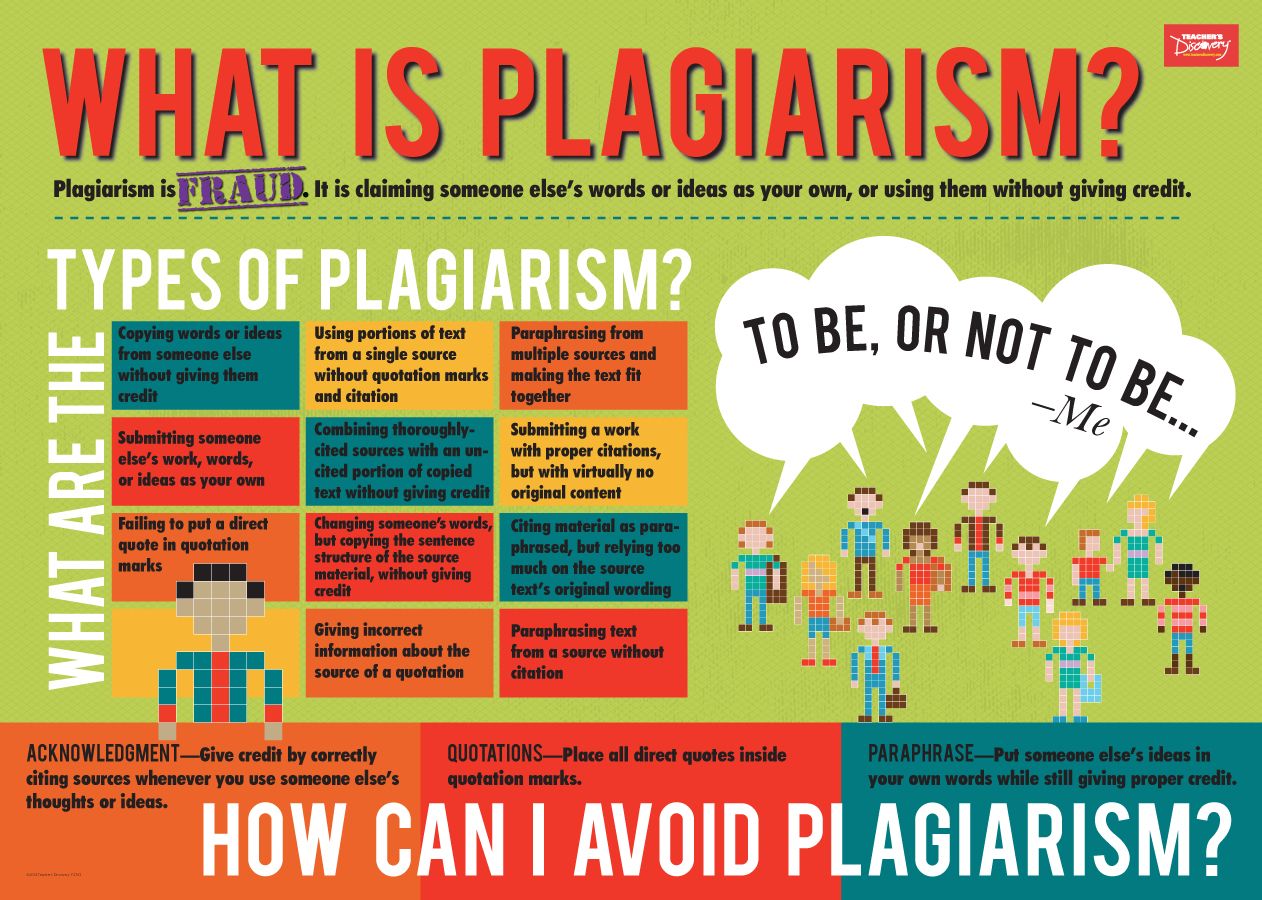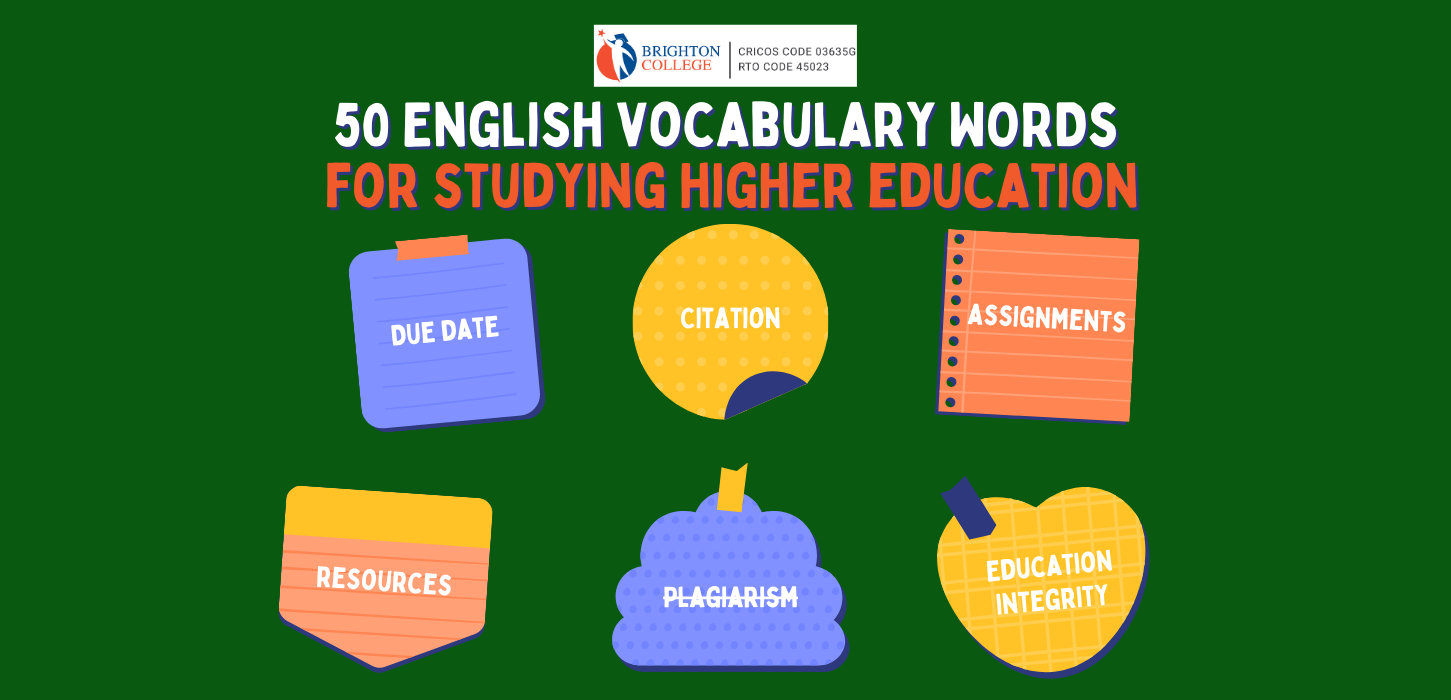When studying for a diploma, TAFE (Technical and Further Education), or higher education, it’s necessary to have a strong grasp of essential English vocabulary to support you in communication.
Here’s a list of 50 essential English vocabulary words:
- Abstract: A summary of the key points or essence of a larger work, often found at the beginning of an academic paper.
- Academic: Related to education, scholarship, or formal study, especially at a higher level.
- Analysis: The detailed examination of something in order to understand its nature or significance.
- Analyze: To examine something in detail, typically for the purpose of explanation or interpretation.
- Argument: A reasoned or logical presentation of ideas or information intended to persuade others.
- Assess: To evaluate or judge the quality, importance, or value of something.
- Assumption: A belief or idea that is taken for granted without proof or evidence.
- Bias: Systematic error or deviation from the truth in judgment or decision-making, often influenced by personal beliefs or preferences.
- Causation: The relationship between cause and effect, where one event (the cause) leads to another event (the effect).
- Citation: A reference to a source of information in a scholarly work.
- Comprehend: To understand the meaning or significance of something.
- Concept: An abstract idea or general notion.
- Conclusion: A final decision or judgment reached after consideration of the facts or evidence.
- Correlation: A statistical relationship between two or more variables that tend to change together.
- Criterion: A standard or principle used to judge or evaluate something.
- Critique: A detailed analysis or assessment of something, often for the purpose of evaluation.
- Data: Facts, statistics, or information collected for analysis.
- Debate: A formal discussion of opposing viewpoints on a particular topic.
- Demonstrate: To show or prove something clearly and convincingly.
- Due date: Deadline for completing or submitting tasks, assignments, payments, or obligations; crucial for timely fulfillment.
- Education integrity: Upholding honesty, ethics, and fairness in academic pursuits, including avoiding plagiarism, cheating, and falsification of data.
- Empirical: Based on observation or experience rather than theory or pure logic.
- Ethics: The moral principles or values that govern human behavior, especially in academic or professional contexts.
- Evaluate: To assess or determine the value, importance, or quality of something.
- Evidence: Information or facts that support a claim, conclusion, or hypothesis.
- Examine: To inspect or scrutinize something closely.
- Experiment: A scientific procedure undertaken to make a discovery, test a hypothesis, or demonstrate a known fact.
- Fallacy: A mistaken belief or deceptive argument that appears to be logical but is not based on sound reasoning.
- Hypothesis: A proposed explanation for a phenomenon that can be tested through research and experimentation.
- Interpret: To explain or understand the meaning of something.
- Investigate: To carry out a systematic inquiry or examination into something.
- Literature: The body of written works, especially scholarly or academic writings.
- Methodology: The systematic approach or set of methods used in a particular area of study or activity.
- Paradigm: A typical example or pattern of something; a framework of understanding.
- Peer review: The evaluation of scholarly work by experts in the same field before publication.
- Perspective: A particular way of viewing things or interpreting events.
- Phenomenon: A fact or event that can be observed or experienced and is the subject of scientific investigation.
- Plagiarism: Presenting someone else’s work, ideas, or words as your own without proper attribution, violating academic integrity.

- Principle: A fundamental truth or proposition serving as the foundation for a system of belief or behavior.
- Qualitative: Relating to or involving the qualities of something rather than its quantity or amount.
- Quantitative: Relating to or involving the measurement of quantity or amount.
- Reliability: The consistency or stability of a research study’s results over time and across different conditions.
- Research: Systematic investigation or study aimed at discovering new knowledge or understanding.
- Synthesis: The combination of separate elements or ideas to form a coherent whole.
- Synthesize: To combine different elements or ideas to form a coherent whole.
- Tertiary: Education level beyond secondary; includes universities, colleges, vocational schools; focuses on advanced learning and specialization.
- Theory: A system of ideas intended to explain something, typically based on principles or evidence.
- Thesis: The main idea or argument of a piece of writing; often found in academic essays or papers.
- Validity: The extent to which a research study accurately measures what it claims to measure.
- Variable: A factor or element that can change or vary in an experiment or study.
The explanations are referenced and rephrased from Cambridge Dictionary.
Read more:


